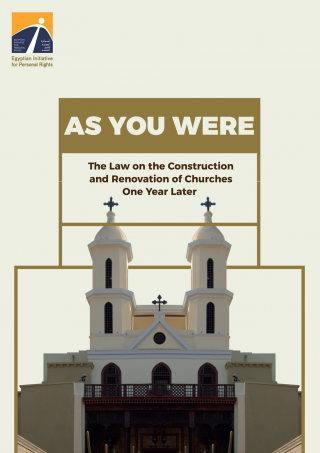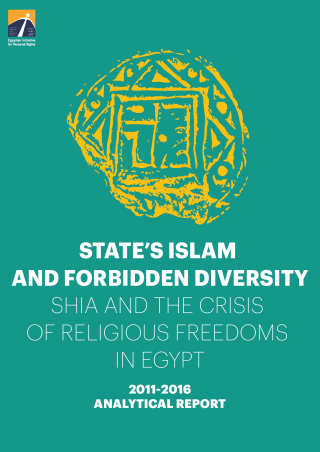Files: Freedom of believe
The court did not allow the lawyers to obtain the case file and only allowed them to see it quickly, and the case documents did not include any specific publications published by the defendants that would qualify as promoting Shiite doctrine, while the accusation articles included article 98 (f) of the Penal Code known as “contempt of religions” that punishes "promoting extremist ideas that ridicule divinely-revealed religions."
What happened in Dimshaw Hashim is not a unique case, but a recurrent pattern in a number of governorates that has been going on recently, manifested in closing a number of existing churches and them being unable to settle their legal status.
The EIPR found that from September 28, 2016, when the church construction law was issued, to April 2018, state institutions have shuttered 14 existing churches that were hosting religious services prior to the closure orders. Four of these churches were closed this year, with Copts denied access to them and prayer services in them prohibited.
Introduction
On September 28, 2016, Law 80/2016 was adopted to regulate the construction and renovation of churches and their annexes. State officials, parliamentarians, and some sectors of the Christian ecclesiastical leadership heralded the new law as a solution to the long-standing difficulties of building or renovating churches.
The Egyptian Initiative for Personal Rights expresses its deep concern about the House of Representatives’ rushed approval of the law regulating the construction and renovation of churches.
As part of efforts by the Egyptian Initiative for Personal Rights to promote freedom of religion and belief and associated rights—most significantly, to build and renovate churches and religious structures—it is launching a campaign titled “Closed on Security Grounds: for a Fair Law on Church Construction.”
“The government has failed to deal with the issue of Christian-Muslim relations and sectarian attacks due to the dominance of a purely security mentality,” said Ishak Ibrahim
The Egyptian Initiative for Personal Rights issued an analytical report today titled “Restricted Diversity in State Religion: The Case of Religious Freedom of Shia Egyptians.” The report documents and analyzes developments
The Egyptian Initiative for Personal Rights issued an analytical report today titled “Restricted Diversity in State Religion: The Case of Religious Freedom of Shia Egyptians.” The report documents and analyzes developments of the status of Shia Egyptians as a case study of the crisis of Muslim citizens adhering to sects other than the dominant state-sanctioned one. It looks at official religious policies that restrict religious diversity in Islam, incitement to hatred, discrimination, violence against Shia, and violations of other human rights from January 2011 to May 2016.





